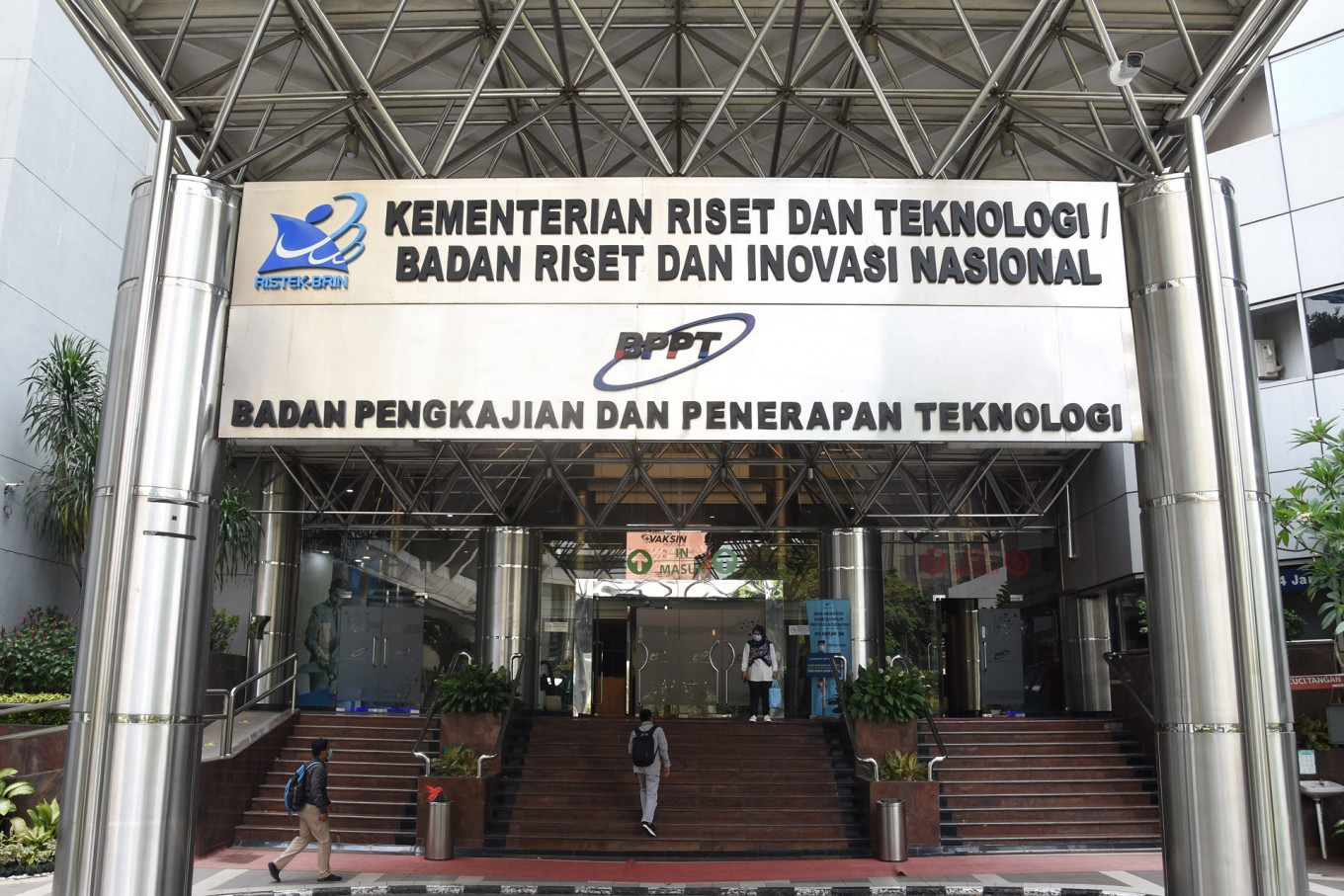Popular Reads
Top Results
Can't find what you're looking for?
View all search resultsPopular Reads
Top Results
Can't find what you're looking for?
View all search resultsInvesting in R&D
The problem is that the nation, for a long time, has failed to prove its commitment to research.
Change text size
Gift Premium Articles
to Anyone
F
or many, the government’s decision to merge the Research and Technology Ministry with the Education and Culture Ministry to make way for the establishment a new ministry focusing on investment sends a wrong message that the government does not treasure science and innovation. Which may not be the case, because the government has not disclosed in detail its new plan to promote research and development.
For sure, the mandate to oversee research will go to the National Research Agency (BRIN), which was established at the start of President Joko “Jokowi” Widodo’s second term in 2019 as an integral part of the Research Ministry. BRIN will now become an independent state agency, but it remains unclear how it works under the new circumstances.
Research and Technology Minister Bambang Brodjonegoro has bid farewell to the public, but the liquidation of the ministry that he has led since October 2019 should not necessarily bring the curtain down on an era. Instead, the dissolution, however controversial, should mark the beginning of a brighter future.
The problem is that the nation, for a long time, has failed to prove its commitment to research, despite the fact that technological innovation as the fruit of research is behind the success of many developed countries. Evidence of this failure is the low research and development budget.
While Indonesia’s R&D budget is only 0.25 percent of the gross domestic product, fellow ASEAN members Vietnam, Thailand and Malaysia spend 0.44 percent, 0.78 percent and 1.3 percent of their GDP, respectively, on R&D. Big countries like the United States, China and Japan, the world’s three largest economies, set the research budget at above 2 percent.
Not only is the country’s research budget limited, it is spread across many institutions dealing with research, which has only created duplication and, hence, inefficient use of funds. A high-ranking official at the research ministry said he often discovered that research was simply copy-pasting research conducted previously by another institution.
There is also a wrong mindset about research budget, which, according to Bambang, does not support the country’s industrialization, let alone the much-vaunted Fourth Industrial Revolution. In Indonesia, the state bears the lion’s share of research spending, while industry plays second fiddle. In most cases, state-funded research does not match industrial needs.
The key to success of many developed nations is the industry players’ leading role in research, as in the case of the United States supremacy in military industry and Japan’s dominance in automotive industry. The national industry’s huge R&D budget is also the backbone of China’s rise in artificial intelligence and South Korea’s advancement in mobile phone technology.
Changing the mindset will be difficult if the government does not incentivize the industrial sector to invest big in R&D. in fact, Finance Minister Regulation No. 153/2020 offers corporate revenue tax deduction of up to 300 percent to the private sector to multiply their research budget.
Whichever institution will take care of research and technology affairs, the government needs to show its commitment clearly. We may not need a research ministry or agency if it bureaucratizes innovation.










